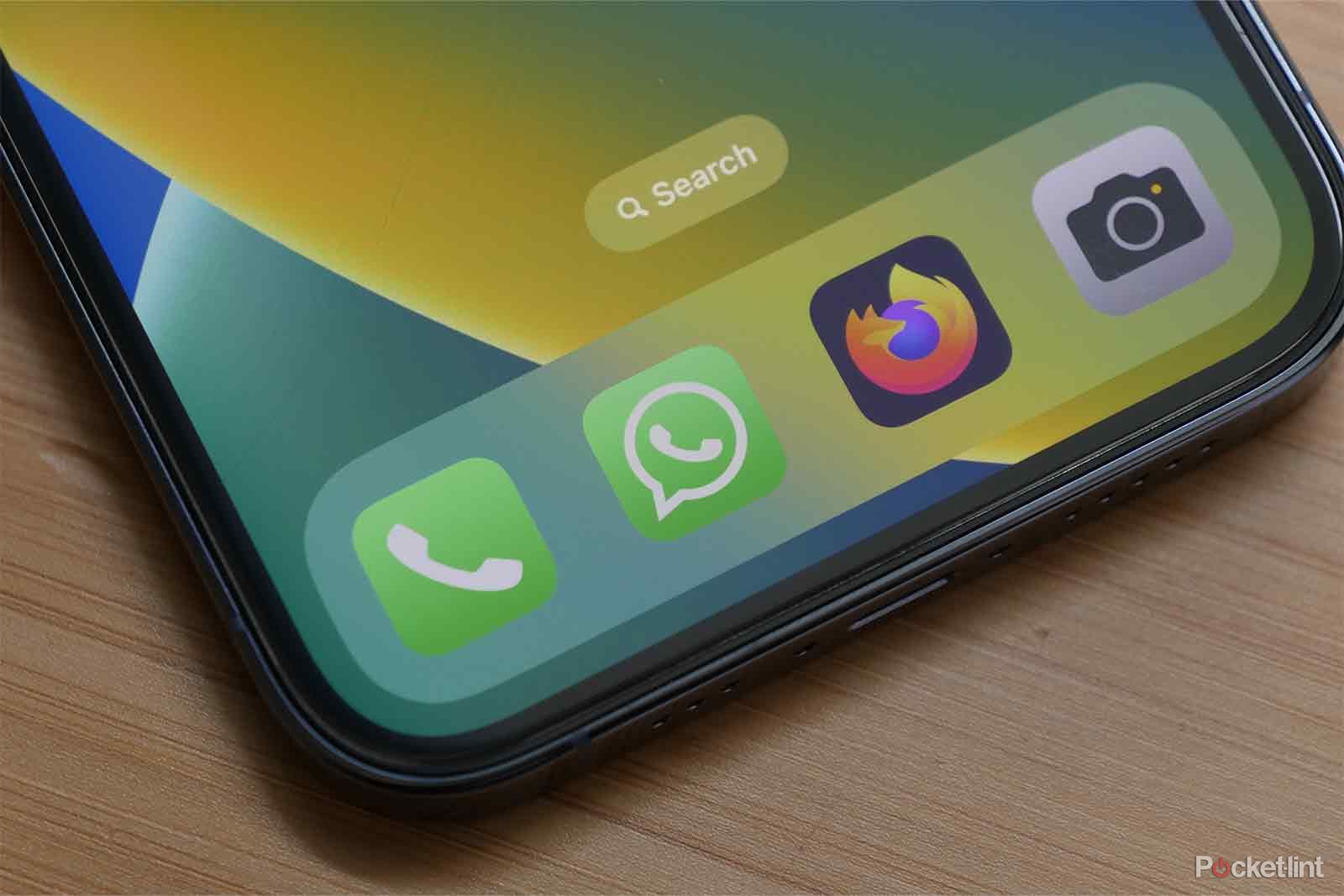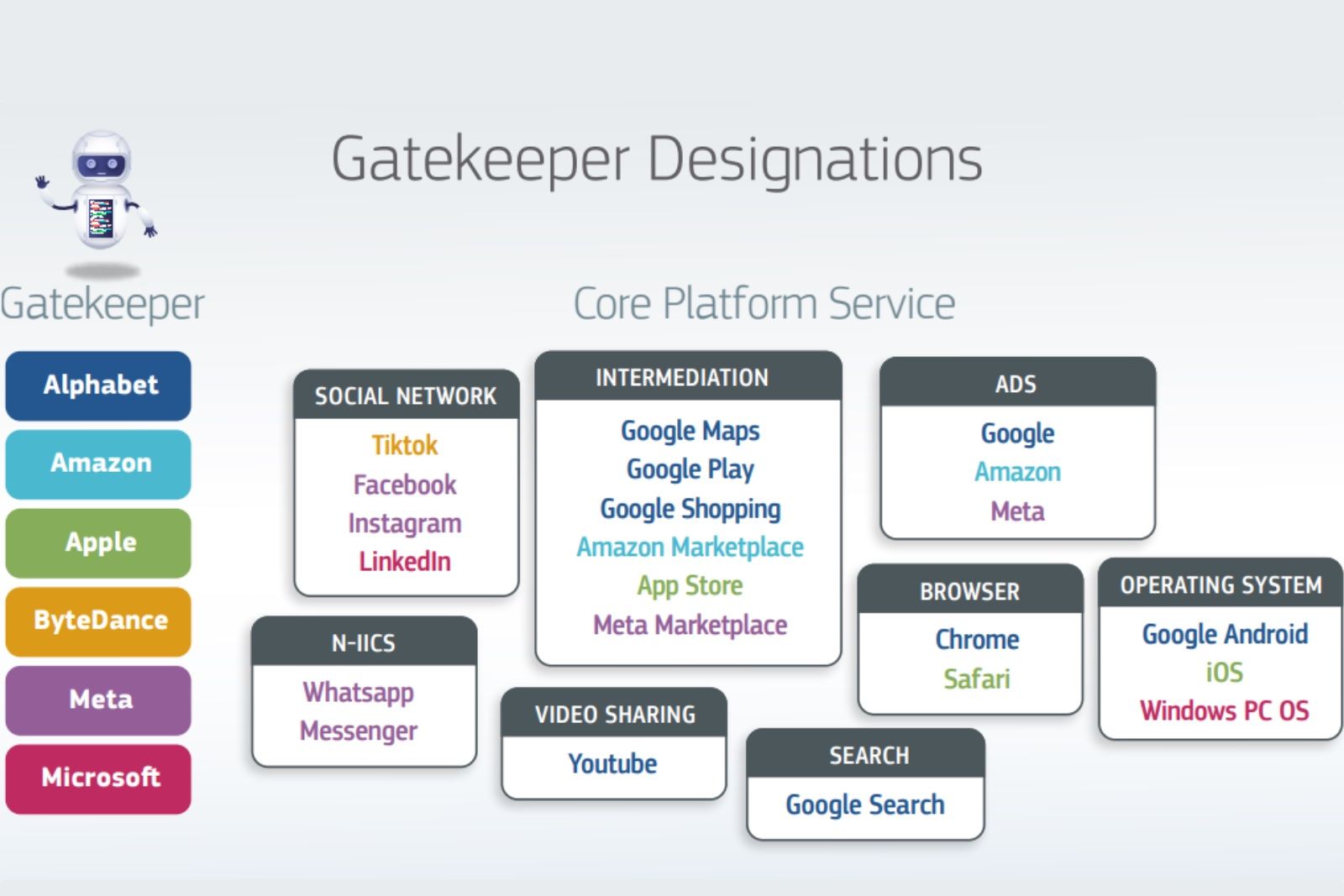Key Takeaways
- The Digital Markets Act (DMA) is a European law aiming to prevent large companies like Apple, Google, Microsoft, and Meta from having excessive power in the market.
- Under the DMA, the European Commission can designate platforms as "gatekeepers" and impose restrictions on them if they meet certain criteria.
- The DMA has the potential to bring significant changes, such as interoperability between platforms, increased access to user data for business users, and the promotion of contracts outside of gatekeeper platforms.
You've probably heard about the Digital Markets Act, or DMA, and wondered what it was all about. It's something that's been appearing in headlines more and more, and it's something that is very likely to do so in the future, too. It's a complicated beast, as so many of these kinds of legislation are, but what is it, and what does it set out to do?
Those are two important questions, and it's straightforward to get into the weeds when you start talking about the DMA. But we will aim to boil it all down as far as possible. To get to the real nut of the issue because, if done right, the DMA could have the potential to make the devices and the services we all use every day better. And that has to be a good thing, right?
What is the European Commission DMA?
In short, it's a European law that aims to prevent large companies like Apple, Google, Microsoft, and Meta from having too much power within any given market. Whether that's the iPhone's iMessage feature, Meta's WhatsApp, or Google search, The DMA is designed to ensure that no one company can dominate a market to the exclusion of everyone else - especially new entrants.
Under the DMA, the European Commission can designate platforms as so-called 'gatekeepers.' A platform could be apps and services like WhatsApp, the iPhone's App Store, YouTube, Google Search, or an entire operating system like iOS, Windows, or Android. For a platform to be considered a gatekeeper, it's supposed to meet a minimum threshold.
The European Commission explains that threshold, saying that "there are three main quantitative criteria that create the presumption that a company is a gatekeeper as defined in the DMA: (i) when the company achieves a certain annual turnover in the European Economic Area, and it provides a core platform service in at least three EU Member States;(ii) when the company provides a core platform service to more than 45 million monthly active end users established or located in the EU and to more than 10,000 yearly active business users established in the EU; and (iii) when the company met the second criterion during the last three years."
That might sound complicated, but the result really isn't - if a platform meets those criteria, it could well be subject to DMA restrictions.
What happens if a platform is designated a gatekeeper?
This is where things get interesting because the DMA has the potential to make some fundamental changes to some big players.
In a nutshell, the DMA has the power to force platforms to do a few things of note, including:
- Force platforms to allow third parties to inter-operate with them. That could mean forcing iMessage to work with WhatsApp, for example.
- Require that business users be allowed to access the data that they create within the gatekeeper's platform.
- Mandate that companies advertising on a gatekeeper's platform be given tools and the information required for them to carry out independent verification of advertisements hosted by the gatekeeper.
- Require gatekeepers to allow business users to promote and begin contracts with their customers outside of the gatekeeper's platform. This one seems to be aimed squarely at Apple and the App Store and could see sideloading come to iPhones in the future.
Which companies and services are already gatekeepers?
The European Commission recently released its first list of gatekeepers, and there are plenty of them. Apple, TikTok, Google, Amazon, Meta, and LinkedIn are just some of those now in the DMA's crosshairs.
The European Commission published a detailed list of press releases that explained how it came to the decisions for each gatekeeper. It also said that "the Commission has opened four market investigations to assess further Microsoft's and Apple's submissions arguing that, despite meeting the thresholds, some of their core platform services do not qualify as gateways." Those include Microsoft's Bing, Edge, and Microsoft Advertising, while Apple's iMessage is also being looked into further.
What does this mean for users of these platforms?
It's important to remember that the European Commission can only force platforms to play by its rules inside the European Union, which obviously doesn't cover a lot of countries and territories around the globe. However, as we recently saw with Apple's switching of the iPhone to USB-C, that might not matter. The EU forced Apple to use a common charger in its member countries, effectively bringing USB-C to iPhones globally.
It's likely that something similar will happen in other cases, too. If Apple has to allow WhatsApp to access its iMessage service, could that mean it will do so everywhere and not just in the EU? Perhaps, and time will tell. For its mart, Meta-owned WhatsApp is already working to open its app to other services like iMessage. If Apple is forced to allow third-party app stores on the iPhone, Microsoft is also set to be ready - it's already working on an Xbox app store.
Even if platform holders only make changes in the EU, people in those countries stand to benefit greatly. Imagine being able to send an iMessage to people on Android, for example. Or be able to sideload apps onto an iPhone. There's even the chance that we'll see TikTok videos on Instagram, too.
What happens next?
The European Commission designated its six gatekeepers (Alphabet, Amazon, Apple, ByteDance, Meta, and Microsoft) on 6 September 2023. Those companies now have six months to ensure full compliance with the DMA across their 22 core platform services. That takes us to 6 March 2024.
Companies that don't comply with the DMA could be in hot water. Failure to meet their obligations could see companies fined up to 10 per cent of their worldwide revenue, and that increases to 20 per cent for repeat instances. There's also the chance of outright bans or forcing companies to offload portions of their business to reduce control of specific markets, too.



